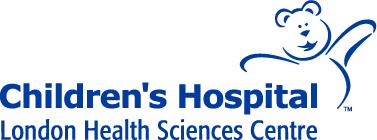There are simple things you can do to help protect your child from getting sick during respiratory illness season. These include:
- Keeping their immunizations up to date (and ensuring caregivers/household members are too)
- Teaching them to wash their hands often and cover their coughs and sneezes
- Allowing them to stay home when feeling sick
- Knowing when to get medical help, especially if their symptoms get worse or they’re at higher risk for severe outcomes
Immunizations available
Immunizations are our best defense against respiratory illnesses. They are safe and effective, plus any side effects are generally mild and go away quickly.
Below you'll find what immunizations are publicly available. Always speak with your child’s health-care provider about which ones are right for them.
Respiratory syncytial virus (RSV)
RSV is a seasonal virus that causes lung and breathing problems, especially in babies, young children and older adults. Immunization can significantly reduce the risk of complications and the need for hospitalization.
Who should be immunized
- All infants born on or after April 1, 2025
- Children up to 24 months old who are at risk for severe RSV illness (if recommended by a health-care provider)
Where to receive immunization
- Your primary care provider’s office (i.e. family doctor, nurse practitioner or paediatrician)
- At Children’s Hospital’s RSV Immunization Clinic
- During an outpatient appointment in Children’s Hospital’s Paediatric Medical Day Unit (PMDU)
- Upon discharge from Children’s Hospital, if admitted
- At Children’s Hospital’s Paediatric Vaccination Clinic, if child has a fear of needles or unique mental health, sensory or behavioural needs
Please note: The RSV immunization period runs from October 1, 2025 to March 31, 2026.
Influenza (flu)
Influenza is a seasonal virus that causes symptoms such as fever, cough and body aches. While most people will recover within seven to 10 days, it can lead to hospitalization and death for some.
Who should be immunized
- Everyone aged six months and older
- Especially important for all children under the age of four, plus children of any age with an underlying medical condition
Where to receive immunization
- Your primary care provider’s office (i.e. family doctor, nurse practitioner or paediatrician)
- A local pharmacy
- During an outpatient appointment in Children’s Hospital’s Paediatric Medical Day Unit (PMDU)
- Upon discharge from Children’s Hospital, if admitted
- At Children’s Hospital’s Paediatric Vaccination Clinic, if child has a fear of needles or unique mental health, sensory or behavioural needs
COVID-19
COVID is a highly contagious virus that affects many parts of the body, including the lungs. Symptoms may range from mild to severe, sometimes resulting in hospitalization, death or long-term complications (known as “long COVID”).
Who should be immunized
- Everyone aged six months and older
- Especially important for children of any age with an underlying medical condition
Where to receive immunization
- Your primary care provider’s office (i.e. family doctor, nurse practitioner or paediatrician)
- A local pharmacy
- Potentially upon discharge from Children’s Hospital, if admitted
- At Children’s Hospital’s Paediatric Vaccination Clinic, if child has a fear of needles or unique mental health, sensory or behavioural needs



